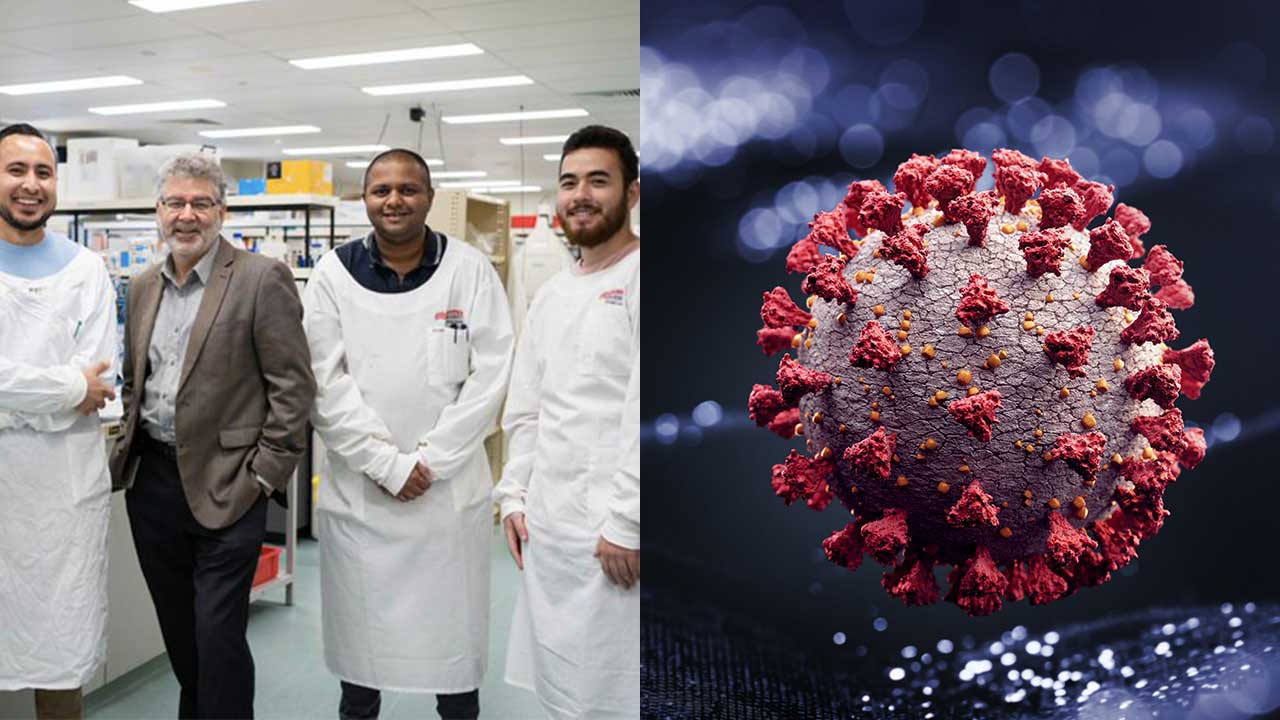Scientists find “important missing piece” to combat COVID-19

Two teams of scientists from Queensland and the US have co-developed a new antiviral treatment that could effectively kill COVID-19.
The “gene-slicing” treatment has been dubbed an “important missing piece” in the arsenal combating the virus.
Professor Nigel McMillan and his team from the Menzies Health Institute at Griffith University, along with scientists from the US City of Hope research centre, said this “next-generation” approach could stop the virus from replicating in the lungs.
Professor McMillian said stage one clinical trials found the treatment reduced the viral load - the amount of viral cells in blood - in mice lungs by 99.99 percent.
Traditional antiviral treatments such as Tamiflu and remdesivir reduce symptoms and help people recover faster, but this new technology directly attacks the virus’ genome, using small interfering RNA (siRNA) to stop the virus from replicating.
The siRNA will be delivered to the lungs using lipid nanoparticles designed at Griffith University and City of Hope.
Professor McMillan said the treatment was quite effective in their mouse trials.
“Treatment with virus-specific RNA reduces viral load by 99.99 percent,” he said.
“These stealth nanoparticles can be delivered to a wide range of lung cells and silence viral genes.”
When the nanoparticles are injected into the bloodstream, they head straight for the lungs and go into “just about every lung cell”.
“Where there’s a virus, it will find it, bind to the genome and destroy it,” Professor McMillan told ABC News.
“This is kind of like taking the engine out of your car. The car won’t go anymore. The virus is dead, it can’t replicate anymore.
“It doesn’t do anything to normal cells.”
Though the scientists are yet to determine how late into the disease they could treat someone, Professor McMillan told ABC News that the animal studies were encouraging.
“This allows the immune system to come and clean it all up and give you that ultimate cure … With that sort of reduction in viral load, people won’t transmit the virus and have a good chance of recovery,” he said.
Because the treatment “targets ultra-conserved regions in the virus’ genome”, it can work on the original SARS virus, SARS-CoV-2 (which causes coronavirus), and any new variants.
The researchers are hoping to progress to the next stage of the trial by the end of the year, and if proven effective, the treatment could be available commercially by 2022.
Image credit: Menzies Health Institute / Twitter
